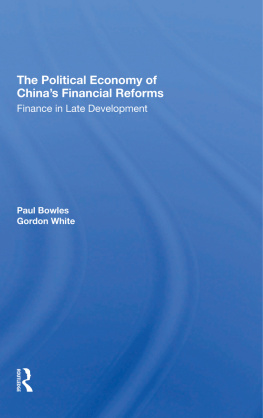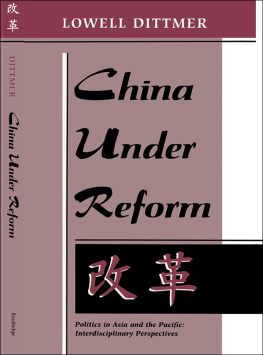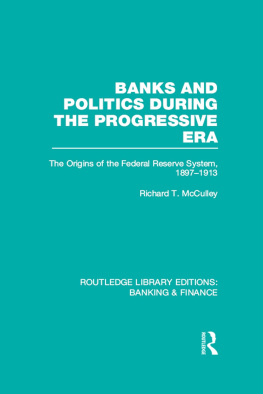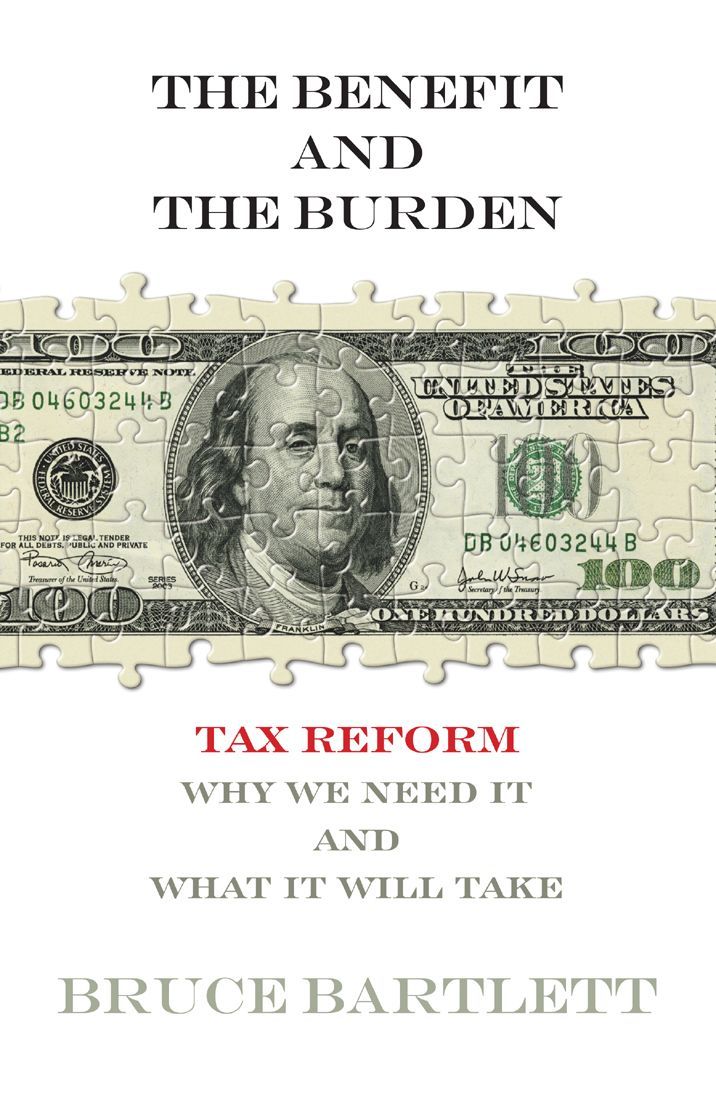
EVERYONE AGREES THE TAX CODE NEEDS REFORM.
BUT HOW DO WE GET IT RIGHT?

A tax code should be fair, competitive, and simple, and the US tax code fails on all three counts.
C ONGRESSMAN P AUL R YAN
Simplification and fairness must be part of our tax code.
C ONGRESSWOMAN N ANCY P ELOSI
My organization, Americans for Tax Reform, created the pledge in 1986 as a simple, written commitment by a candidate or elected official that he or she will oppose, and vote against, tax increases. Over the years many candidates and elected officials have signed the pledge, including 236 current members of the House of Representatives and 41 current senators.
G ROVER N ORQUIST , W RITING IN T HE N EW Y ORK T IMES
Warren Buffett pays a lower tax rate than his secretary and the 19 other people who work in his office. He pays a much lower rate than I do, and, I suspect, lower than nearly everyone reading this column... Is this fair?
J AMES S TEWART , T HE N EW Y ORK T IMES
Is it time for another 1986 moment?... Junking the tax code is one of [Obamas] last chances to pour growth hormones into a sickly economy and get jobs back before November 2012.
S TEPHEN M OORE , T HE W ALL S TREET J OURNAL
There is no doubt that our tax code is badly in need of reform.
S ENATOR C HUCK G RASSLEY, IN A LETTER TO P RESIDENT O BAMA
President Obamas proposal to boost taxes for the wealthy by $1.5 trillion over the next decade is a good first step toward reforming a system in which billionaire hedge-fund executives are taxed at a lower rate than are their chauffeurs and private chefs.
E UGENE R OBINSON , T HE W ASHINGTON P OST
A thoughtful and surprising argument for American tax reform, arguably the most overdue political debate facing the nation, from one of the most respected political and economic thinkers, advisers, and writers of our time.
THE UNITED STATES TAX CODE has undergone no serious reform since 1986. Since then, loopholes, exemptions, credits, and deductions have distorted its clarity, increased its inequity, and frustrated our ability to govern ourselves.
At its core, any tax system is in place to raise the revenue needed to pay the governments bills. But where that revenue should come from raises crucial questions: Should our tax code be progressive, with the wealthier paying more than the poor, and if so, to what extent? Should we tax income or consumption or both? Of the various ideas proposed by economists and politiciansfrom tax increases to tax cuts, from a VAT to a Fair Taxwhat will work and wont? By tracing the history of our own tax system and by assessing the way other countries have solved similar problems, Bartlett explores the surprising answers to all of these questions, giving a sense of the tax codes many benefitsand its inevitable burdens.
Tax reform will be a major issue debated in the years ahead. Growing budget deficits and the expiration of various tax cuts loom. Reform, once a philosophical dilemma, is turning into a practical crisis. By framing the various tax philosophies that dominate the debate, Bartlett explores the distributional, technical, and political advantages and costs of the various proposals and ideas that will come to dominate Americas political conversation in the years to come.

BRUCE BARTLETT is a columnist for the Economix blog of The New York Times ; for The Fiscal Times, an online newspaper covering the economy, business, and personal finance; and for Tax Notes , a weekly magazine for tax policymakers and practitioners. Bartletts work is informed by many years in government, including service on the staffs of Congressmen Ron Paul and Jack Kemp and Senator Roger Jepsen; as staff director of the Joint Economic Committee of Congress; senior policy analyst in the Reagan White House; and deputy assistant secretary for economic policy at the Treasury Department during the George H.W. Bush administration. He lives in Virginia.
MEET THE AUTHORS, WATCH VIDEOS AND MORE AT
SimonandSchuster.com
THE SOURCE FOR READING GROUPS
JACKET DESIGN BY MARC COHEN
COPYRIGHT 2012 SIMON & SCHUSTER

ALSO BY THE AUTHOR
The New American Economy: The Failure of
Reaganomics and a New Way Forward
Impostor: How George W. Bush Bankrupted
America and Betrayed the Reagan Legacy
Wrong on Race: The Democratic Partys Buried Past
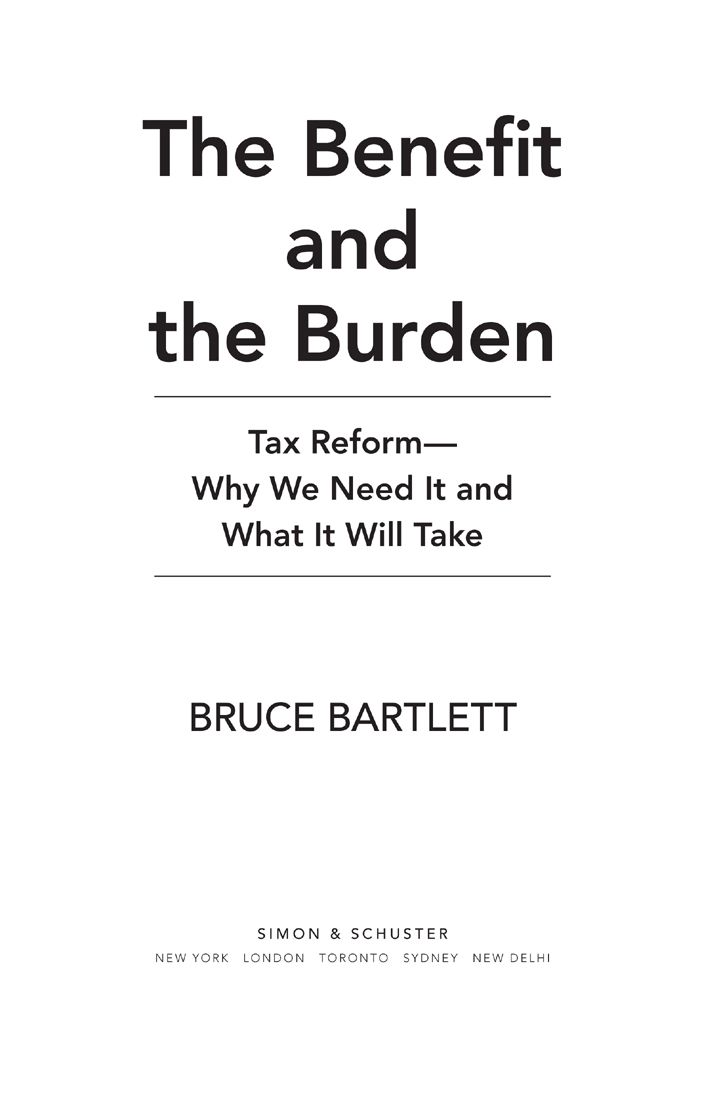
 | Simon & Schuster
1230 Avenue of the Americas
New York, NY 1002
www.SimonandSchuster.com |
Copyright 2012 by Bruce Bartlett
All rights reserved, including the right to reproduce this book or portions thereof in any form whatsoever. For information address Simon & Schuster Subsidiary Rights Department, 1230 Avenue of the Americas, New York, NY 10020.
First Simon & Schuster hardcover edition January 2012
SIMON & SCHUSTER and colophon are registered trademarks of Simon & Schuster, Inc.
The Simon & Schuster Speakers Bureau can bring authors to your live event. For more information or to book an event contact the Simon & Schuster Speakers Bureau at 1-866-248-3049 or visit our website at www.simonspeakers.com.
Designed by Level C
Library of Congress Cataloging-in-Publication Data
Bartlett, Bruce R., 1951
The benefit and the burden : tax reformwhy we need it and what it will take / Bruce Bartlett.
p. cm.
Includes bibliographical references and index.
1. TaxationUnited States. 2. Income taxUnited States. 3. Fiscal policyUnited States. I. Title.
HJ2381.B375 2012
336.2050973dc23
2011048585
ISBN 978-1-4516-4619-1
ISBN 978-1-4516-4626-9 (ebook)
For my brother and sister
Systems of taxation are not framed, nor is it possible to frame them, with perfect distribution of benefit and burden. Their authors must be satisfied with a rough and ready form of justice.
Supreme Court Justice Benjamin Cardozo
Louis K. Liggett v. Lee
288 U.S. 517 (1933)
Thank you for purchasing this Simon & Schuster eBook.
Sign up for our newsletter and receive special offers, access to bonus content, and info on the latest new releases and other great eBooks from Simon & Schuster.

or visit us online to sign up at
eBookNews.SimonandSchuster.com
Contents
Introduction
T he tax code is like a garden. Without regular attention, it grows weeds that will soon overwhelm the plants and flowers. Unfortunately, no serious weeding had been done to the tax code since 1986. In the meantime, many new plants and flowers have been added without regard to the overall aesthetic of the garden. The result today is an overgrown mess. There is a desperate need to pull the weeds, cut away the brush, and rethink some of the plantings to restore order, beauty, and functionality to the garden.
Next page







